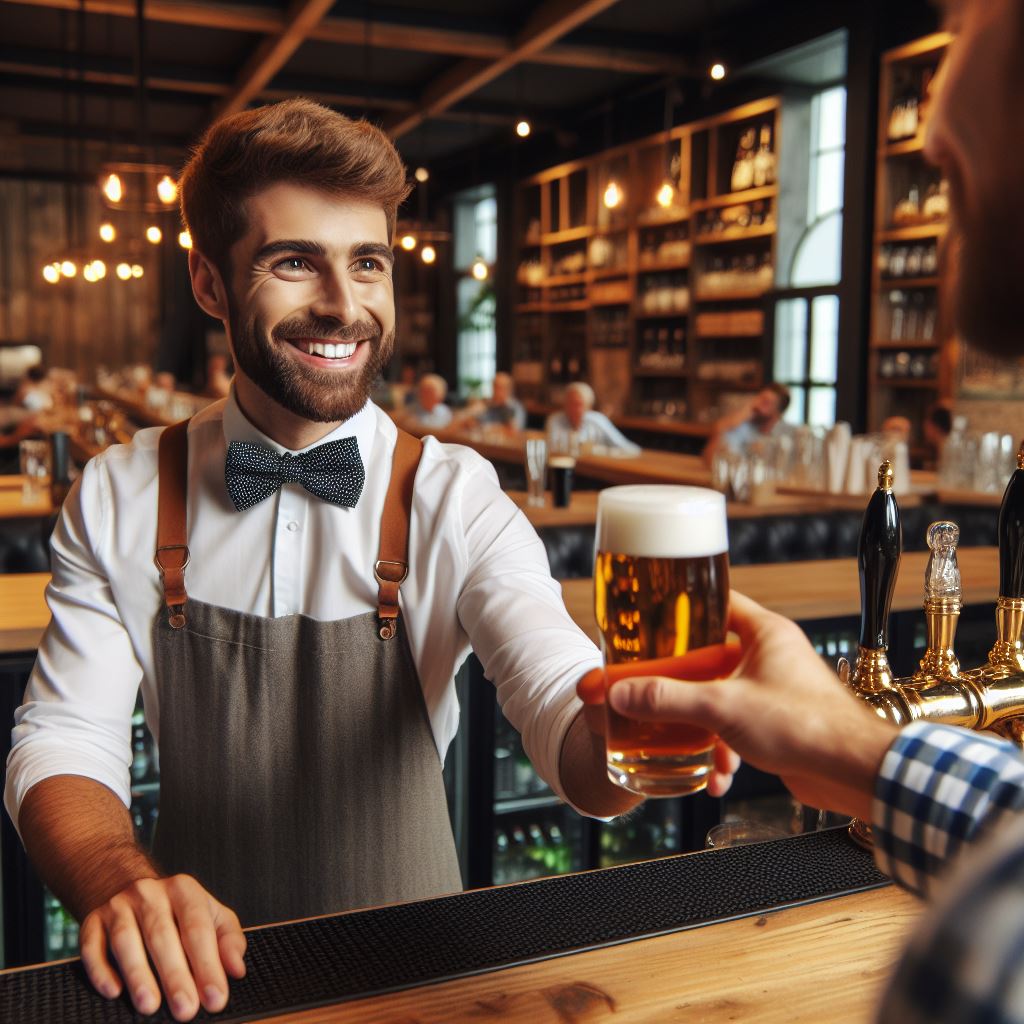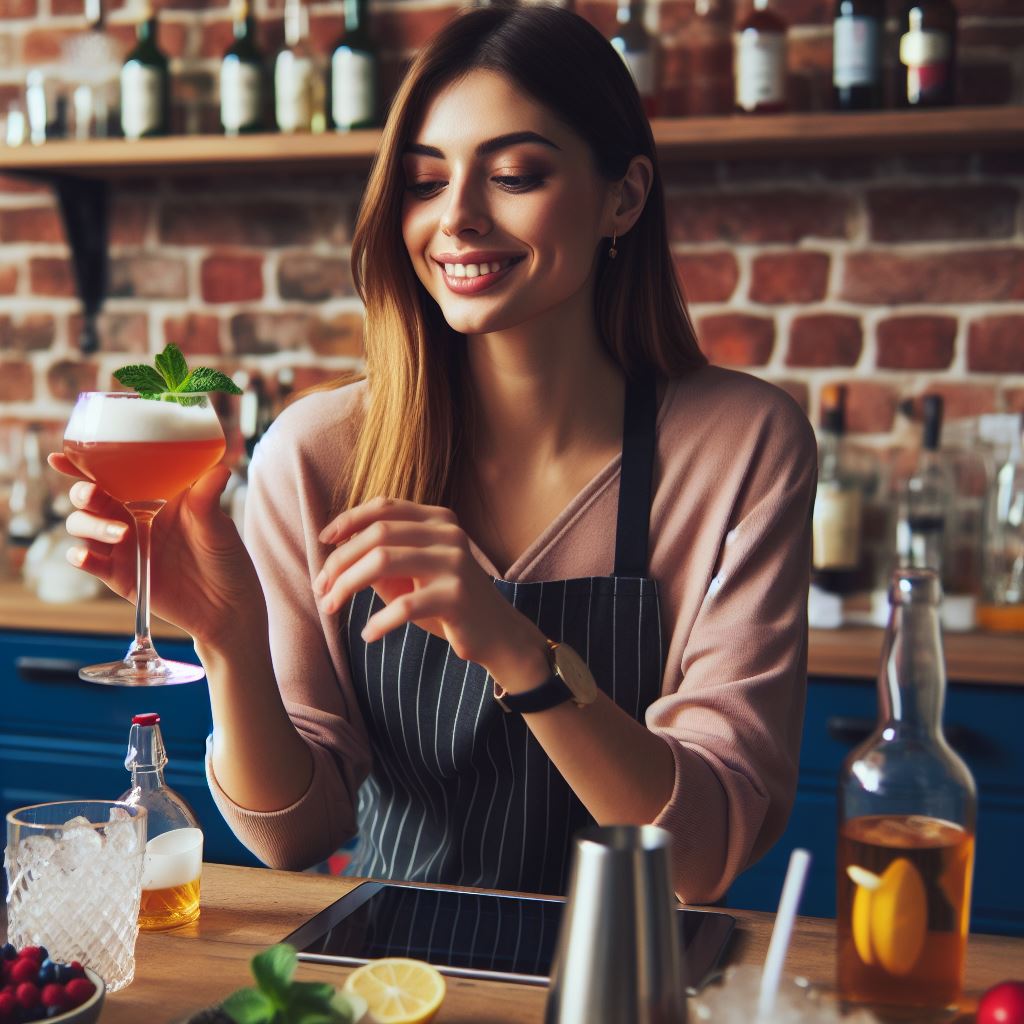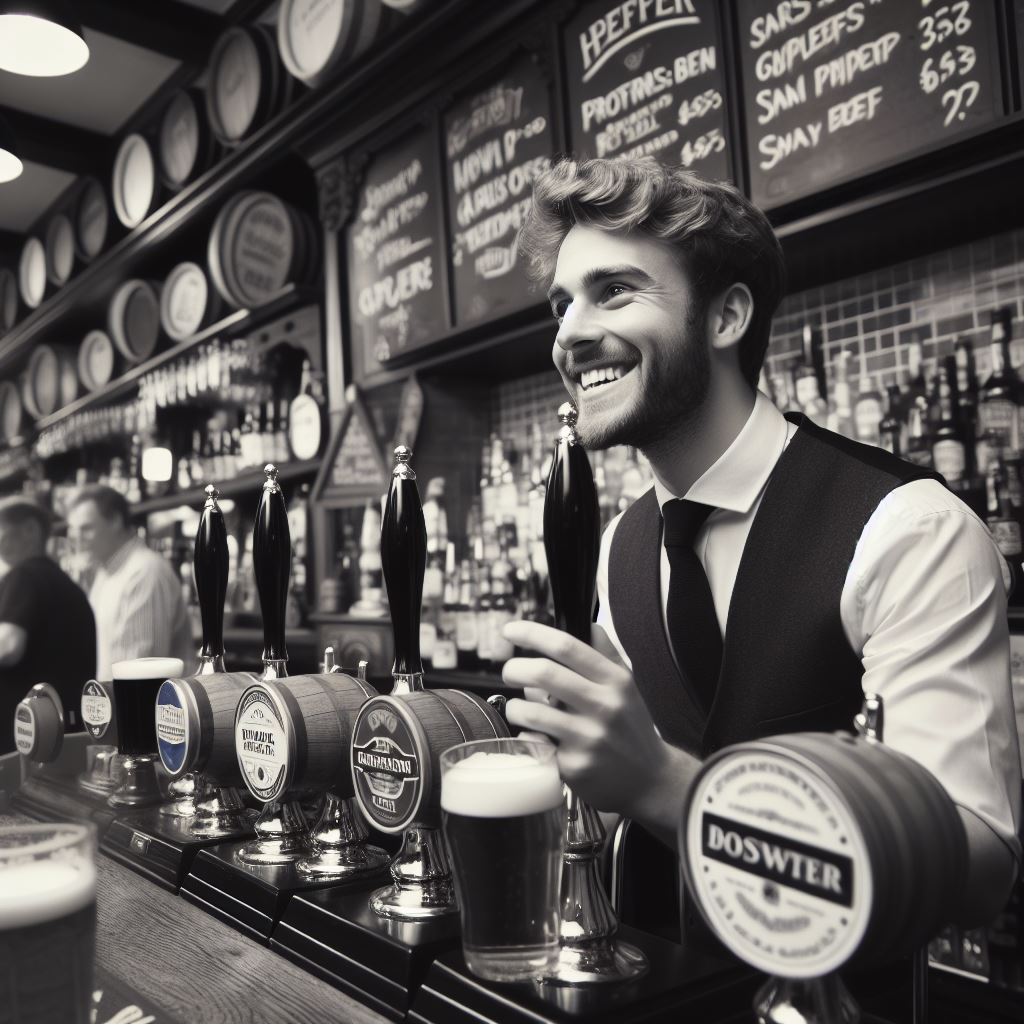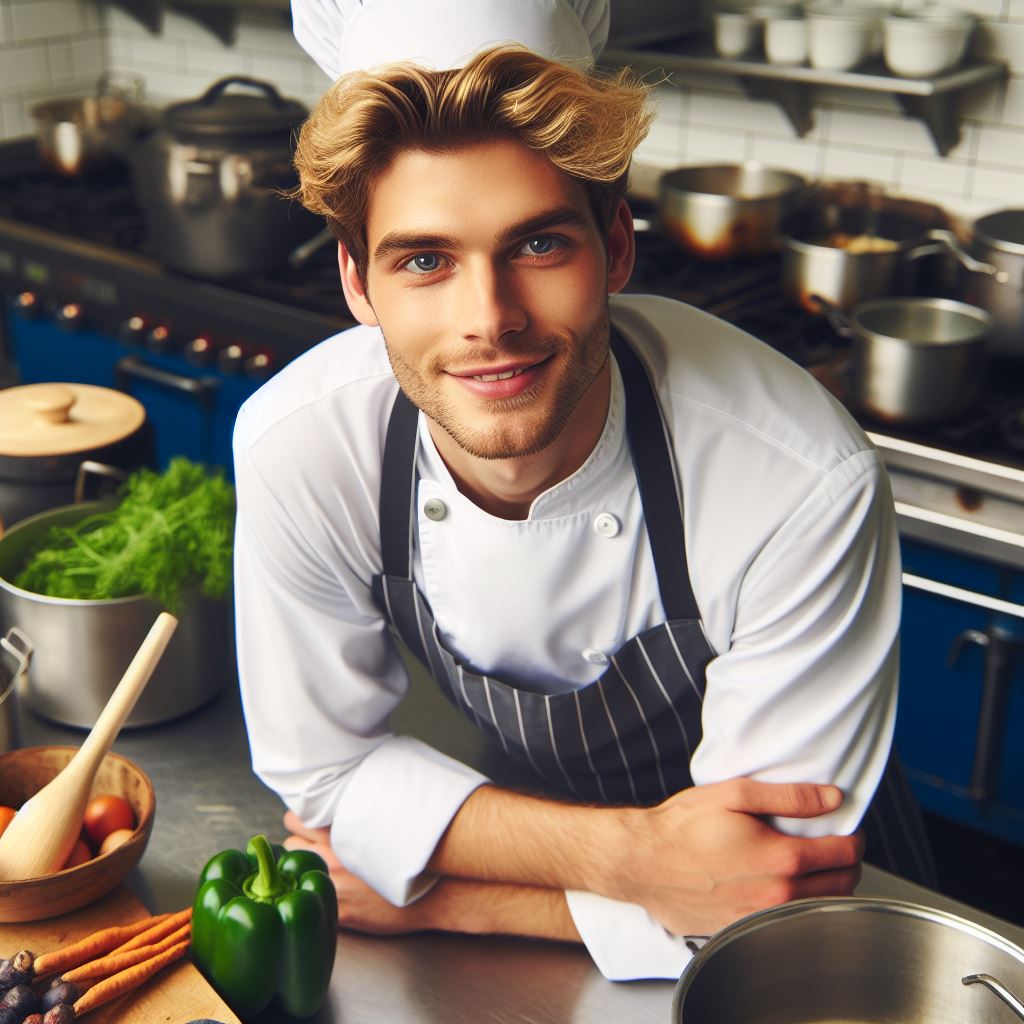Introduction
Crafting cocktails is an essential skill that every UK bartender needs to excel in their profession.
The ability to create unique and delicious drinks is a fundamental aspect of bartending.
Embarking on the artful journey of mixology, crafting cocktails transcends mere bartending; it embodies a fusion of precision, creativity, and sensory mastery.
In the realm of UK bartending, honing essential skills becomes paramount, unlocking a world where libations are not just beverages but symphonies of flavor, presentation, and an unparalleled hospitality experience.
In this blog post, we will discuss the essential skills that every UK bartender needs to excel in crafting cocktails.
Join us as we delve into the intricacies of mixological artistry, exploring the indispensable skills every UK bartender must cultivate to elevate their craft to new heights.
By mastering these skills, bartenders can offer their customers an unforgettable drinking experience.
Welcome to the intoxicating realm of cocktail craftsmanship.
Knowledge of Different Spirits and Ingredients
Having a comprehensive knowledge of various spirits, liqueurs, and other ingredients used in cocktails is crucial for bartenders.
Understanding different flavor profiles and characteristics of spirits allows bartenders to create balanced and unique cocktails.
Bartenders must stay updated with new products and trends in the industry to meet customer expectations.
The Importance of Comprehensive Knowledge
A skilled bartender needs to be familiar with a wide range of spirits, liqueurs, and ingredients.
Knowing the differences between vodka, rum, gin, tequila, and whiskey is essential for creating the perfect cocktail.
Furthermore, knowledge of liqueurs such as triple sec, amaretto, and vermouth expands the range of possible cocktail creations.
An understanding of various ingredients like fresh fruits, herbs, spices, and syrups enables bartenders to experiment and innovate.
Personalized UK Career Consulting
Receive tailored career guidance designed just for you. Get actionable steps and expert support to boost your career in 1-3 days. Take control of your career now.
Get StartedBy knowing the characteristics and flavor profiles of different spirits and ingredients, bartenders can create balanced and harmonious cocktails.
They can pair complementary flavors or contrast flavors intentionally to create a unique sensory experience.
A well-crafted cocktail should have a balance of sweetness, acidity, bitterness, and alcohol content.
By knowing the characteristics of the spirits used, bartenders can control these elements to craft a perfectly balanced drink.
Staying Updated with New Products and Trends
The cocktail industry is constantly evolving, with new spirits, liqueurs, and ingredients being introduced regularly.
Bartenders need to stay updated with these new products to meet customer expectations and offer innovative drink options.
New products can inspire bartenders to create unique cocktails and provide a fresh experience for customers.
Additionally, staying updated with trends in the industry helps bartenders cater to changing customer preferences.
For example, the recent surge in popularity of craft spirits and artisanal ingredients has influenced the cocktail scene.
Bartenders who stay informed about these trends can incorporate them into their drink menus and attract adventurous customers.
Keeping up with the latest trends also allows bartenders to offer seasonal cocktails and capitalize on current consumer demands.
By constantly exploring new products and trends, bartenders can enhance their skills and stay ahead in the industry.
A successful bartender needs a comprehensive knowledge of different spirits, liqueurs, and ingredients.
Understanding flavor profiles and characteristics of these components allows for the creation of balanced and unique cocktails.
Your Dream Job Starts with a Perfect CV
Get a tailored CV and cover letter that captures your unique strengths and stands out in your industry. Let us help you make an unforgettable first impression.
Get StartedStaying updated with new products and industry trends ensures bartenders can satisfy customer expectations and offer innovative drink options.
By continuously expanding their knowledge and skills, bartenders can master the art of crafting cocktails and elevate the customer experience.
Read: Top Bartending Schools in the UK: Your Best Choices
Mixology Techniques and Drink Preparation
Mastering mixology techniques is essential for every bartender in the UK.
Properly executing shaking, stirring, muddling, and layering can significantly impact the taste, texture, and presentation of cocktails.
The importance of mastering mixology techniques
Shaking
- Shaking is a technique that incorporates air and dilution to create a well-balanced cocktail.
- Popular shaken cocktails include the classic Margarita and the refreshing Daiquiri.
- To properly shake a cocktail, fill a shaker with ice, add the ingredients, and vigorously shake for about 10-15 seconds.
- Remember to strain the cocktail into a chilled glass to avoid serving any ice chips.
Stirring
- Stirring is the preferred technique for cocktails that are primarily alcohol-based.
- Famous stirred cocktails include the sophisticated Martini and the elegant Negroni.
- To correctly stir a cocktail, use a mixing glass filled with ice, add the ingredients, and gently stir with a bar spoon for about 30 seconds.
- After stirring, strain the cocktail into a chilled glass, preferably without any additional ice.
Muddling
- Muddling is a technique that releases the flavors of fresh ingredients like fruits, herbs, or spices.
- Popular muddled cocktails include the classic Mojito and the flavorful Caipirinha.
- To muddle a cocktail, place the fresh ingredients in the bottom of a glass, add any sweeteners or juices, and gently mash with a muddler or the back of a spoon.
- After muddling, fill the glass with ice, add the remaining ingredients, and stir or shake as needed.
Layering
- Layering is a technique used to create visually appealing cocktails with distinct layers of different-colored liquids.
- Famous layered cocktails include the beautiful Pousse Café and the popular B-52.
- To layer a cocktail, select ingredients with varying densities, gently pour each ingredient over the back of a spoon, allowing it to float on top of the previous layer.
- Using a steady hand and patience, continue layering until the desired effect is achieved.
Knowing the proper mixology techniques ensures that each cocktail is prepared with precision and care.
These techniques directly affect the taste, texture, and presentation of cocktails, providing customers with an exceptional drinking experience.
So, whether it’s shaking a Margarita, stirring a Martini, muddling a Mojito, or layering a Pousse Café, bartenders must be skilled in executing these techniques flawlessly.
By mastering mixology, a bartender can elevate the craft of cocktails to new heights.
Read: A Day in the Life of a UK Bartender: Real Stories
Creativity and Innovation
The significance of bartenders being creative and capable of inventing new and exciting cocktail recipes
Creativity and innovation are crucial for bartenders to create new and exciting cocktail recipes.
Bartenders need to think outside the box and experiment with different ingredients, flavors, and presentation styles.
Tips for fostering creativity and staying inspired in the cocktail-making process
To foster creativity, bartenders can attend cocktail-making workshops and collaborate with other professionals in the industry.
Staying inspired requires seeking inspiration from various sources such as art, nature, and travel experiences.
Optimize Your LinkedIn for Success
Boost your LinkedIn profile with a professional bio, keyword-rich headline, and strategic recommendations that attract recruiters. Stand out from the crowd and get noticed.
Optimize NowBartenders should also keep up with the latest trends in mixology and attend industry events and conferences.
Experimenting with unique ingredients like infused spirits, homemade syrups, and bitters can help create signature cocktails.
Bartenders can try using uncommon fruits, herbs, and spices to add depth and complexity to their creations.
Presentation is equally important, so considering garnishes, glassware, and unique serving techniques can elevate a cocktail’s appeal.
Playing with color, texture, and even smoke can enhance the overall experience for customers.
To stay inspired, bartenders should constantly challenge themselves by developing new techniques and trying new combinations.
Taking inspiration from classic cocktails and putting a new twist on them can also spark creativity.
Bartenders can create seasonal menus that reflect the flavors and produce available during different times of the year.
Collaborating with local farmers and artisans can inspire unique flavor profiles and foster a sense of community.
Traveling to different regions and experiencing their local spirits and traditions can provide fresh ideas for cocktail recipes.
Attending mixology competitions can be a great way to showcase creativity and learn from other talented bartenders.
Engaging with customers and seeking feedback can also help bartenders refine and improve their creations.
Experimentation with ingredients, flavors, and presentation to create signature cocktails
Experimenting with molecular mixology techniques, such as foams, spheres, and gels, can add a modern and innovative touch to cocktails.
Bartenders can create signature drinks inspired by their personal interests, such as music, literature, or movies.
Keeping a well-stocked bar with a variety of spirits, liqueurs, and bitters can provide endless opportunities for experimentation.
Creating a comfortable and inspiring workspace, with access to fresh ingredients and quality tools, can enhance the creative process.
Encouraging teamwork and collaboration among bartenders can lead to the sharing of ideas and inspiration.
Using social media platforms to showcase creations, connect with other professionals, and gain inspiration from cocktail enthusiasts.
Final tip: Don’t be afraid to make mistakes and learn from them. Embrace the creative process and let your imagination run wild!
Read: How to Become an Event Planner in the UK

Excellent Customer Service and Communication Skills
Building rapport with customers and creating a welcoming atmosphere behind the bar is crucial.
Bartenders need to be attentive, friendly, and knowledgeable when interacting with customers.
Effective communication plays a vital role in understanding customers’ preferences and providing personalized recommendations.
Building Rapport: Why It Matters
Building rapport with customers is essential for creating a positive experience.
It helps to establish a connection and make customers feel comfortable and valued.
When bartenders build rapport, they enhance customer loyalty and increase the chances of repeat business.
Creating a Welcoming Atmosphere
Behind the bar, bartenders should strive to create a warm and inviting atmosphere.
A friendly and approachable demeanor can make customers feel at ease and encourage them to engage in conversation.
Welcoming customers helps to establish trust and ensures they have a memorable experience.
Attentiveness is Key
Bartenders must be attentive to customers’ needs and preferences.
They should actively listen to what customers are saying, paying attention to their drink orders and any special requests.
Being attentive allows bartenders to deliver a personalized experience and exceed customer expectations.
Friendliness Goes a Long Way
A friendly attitude makes customers feel comfortable and valued.
Bartenders should greet customers with a smile, maintain eye contact, and engage in friendly conversation.
A warm and cheerful demeanor contributes to a positive atmosphere, encouraging customers to return.
Knowledge is Power
Bartenders should have a comprehensive understanding of various drinks and their ingredients.
This knowledge allows them to guide customers in selecting the perfect drink based on their preferences.
By showcasing their knowledge, bartenders gain customers’ trust and enhance their overall experience.
Effective Communication: Understanding Customers’ Preferences
Effective communication is crucial for understanding customers’ drink preferences.
Bartenders should ask questions and actively listen to customers’ responses to gain insight into their tastes and preferences.
Understanding customers’ preferences enables bartenders to make tailored recommendations.
Personalized Recommendations
Based on customers’ preferences, bartenders can provide personalized recommendations.
This involves suggesting drinks that align with customers’ tastes and preferences.
By offering personalized recommendations, bartenders demonstrate their expertise and add value to the customer experience.
Handling Customer Complaints and Feedback
Effective communication skills are essential for addressing customer complaints and feedback.
Bartenders should be open and receptive to constructive criticism, actively listening to customers’ concerns.
Offering genuine apologies and finding suitable solutions can help resolve issues and turn negative experiences into positive ones.
Efficient Communication with Colleagues
Communication with colleagues is vital for providing excellent customer service.
Effective communication ensures smooth operations behind the bar and allows bartenders to assist one another when needed.
Cooperating and communicating efficiently with colleagues fosters a positive work environment and ultimately benefits the customers.
Going the Extra Mile
Excellent customer service goes beyond meeting basic expectations.
Bartenders can differentiate themselves by going the extra mile, such as remembering customers’ preferences or surprising them with unique drink creations.
These small gestures show customers that the bartender genuinely cares about their experience.
In essence, excellent customer service and communication skills are fundamental for bartenders in the UK.
Building rapport with customers, creating a welcoming atmosphere, and effective communication are all essential elements in providing a memorable and enjoyable experience for patrons.
By mastering these skills, bartenders can ensure customer satisfaction and foster long-term relationships.
Read: UK Chef Work-Life Balance: Myth or Reality?
Time Management and Organization
How time management is crucial in a fast-paced bar environment to ensure efficient service
Time management is crucial in a fast-paced bar environment to ensure efficient service.
Bartenders must juggle multiple tasks, handle customer orders, and maintain a high level of accuracy.
Organization plays a significant role in maintaining a clean and well-stocked bar station.
This includes arranging ingredients, glassware, utensils, and other essentials in a logical and accessible manner.
Tips and techniques for effective time management, multitasking, and maintaining order in the bar area
Here are some tips and techniques for effective time management, multitasking, and maintaining order in the bar area:
Prioritize Tasks
Identify the most urgent and important tasks and tackle them first.
This will help prevent bottlenecks and ensure smooth operations.
Create a Work Schedule
Develop a consistent work schedule that includes designated breaks.
Stick to the schedule to avoid sacrificing efficiency and burnout.
Implement a System for Replenishment
Establish a system for restocking ingredients, garnishes, and other bar essentials.
Regularly check inventory levels to avoid running out during peak hours.
Utilize Time-Saving Techniques
Master techniques like pre-batching cocktails, using time-saving tools, and creating standard operating procedures (SOPs) for routine tasks.
Clear Communication
Effective communication among bar staff is essential for smooth operations. Clearly communicate orders, needs, and any changes to prevent errors and delays.
Practice Multitasking
Bartenders often need to handle multiple tasks simultaneously.
Practice multitasking skills such as pouring drinks while engaging with customers or preparing garnishes.
Clean as You Go
Maintain cleanliness and orderliness by cleaning and organizing continuously.
This ensures a hygienic environment and saves time during closing duties.
Use Workflow Optimization Techniques
Optimize your workflow by arranging your bar setup logically, ensuring easy access to frequently used tools and ingredients.
Be Proactive
Anticipate customer needs and prepare accordingly.
Stock up on popular ingredients and be prepared to make recommendations to enhance customer experience.
Continuous Training and Improvement
Invest in continuous training to enhance efficiency and productivity.
Keep up with industry trends and new techniques to stay ahead of the competition.
In a fast-paced bar environment, time management and organizational skills are vital.
Prioritizing tasks, implementing efficient systems, and staying organized contribute to excellent service.
By practicing effective time management techniques and maintaining a well-organized bar station, bartenders can ensure superior customer satisfaction and a thriving bar business.
Conclusion
Becoming a UK bartender requires essential skills in various areas.
This blog post has highlighted the importance of knowledge of spirits and ingredients, mixology techniques, creativity, customer service, and time management.
Continuous learning and practice are crucial for excelling in this field.
With the ever-evolving cocktail industry, bartenders must stay updated with the latest trends, new spirits, and innovative techniques.
Aspiring bartenders should never stop learning and seeking new opportunities to enhance their skills.
By attending workshops, seminars, and competitions, they can expand their knowledge and network with industry professionals.
Developing these skills and pursuing a successful career in crafting cocktails can be highly rewarding.
Not only will bartenders have the chance to showcase their creativity and passion, but they will also have the opportunity to create memorable experiences for their customers.
So, aspiring bartenders, remember that dedication and perseverance are key.
With the right skills and a positive attitude, you can carve a niche for yourself in the exciting world of crafting cocktails.
Cheers to a successful and fulfilling career in bartending!
[E-Book for Sale]
500 Cutting-Edge Tech Startup Ideas for 2024 & 2025: Innovate, Create, Dominate
$19.99 • 500 Tech Startup Ideas • 62 pages
You will get inspired with 500 innovative tech startup ideas for 2024 and 2025, complete with concise descriptions to help you kickstart your entrepreneurial journey in AI, Blockchain, IoT, Fintech, and AR/VR.




